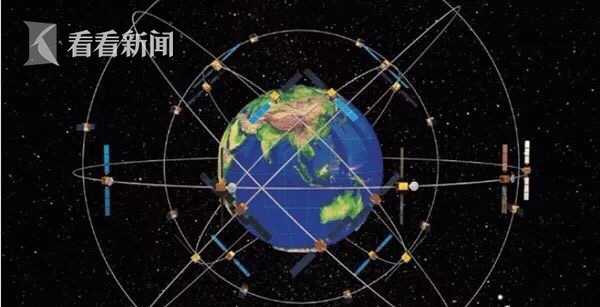
1. System stability refers to 1 System stability refers to a certain stable state shown by system elements under external influence. Its meanings are roughly divided into the following three categories: (1), external temperature, mechanical and other various changes, which do not have a significant impact on the state of the system.
2. The so-called system stability refers to the performance of the system recovering from the initial deviation state to the original equilibrium state after the disturbance disappears. In classical control theory, the sufficient necessary condition for system stability is that when time tends to infinity, the unit pulse of the system is correspondingly equal to zero.
3. It means that when the system is disturbed, it deviates from the original equilibrium state, and when the disturbance disappears, the system can gradually return to the original equilibrium state, which means that the system is stable.
The so-called system stability refers to the performance of the system recovering from the initial deviation state to the original equilibrium state after the disturbance disappears. In classical control theory, the sufficient necessary condition for system stability is that when time tends to infinity, the unit pulse of the system is correspondingly equal to zero.
Then the number of Z of the closed-loop right poles of the system is: Z=N+P. When Z=0, the system is stable; when Z0, the system is unstable.
The stability of a linear system is the main performance indicator of the system. The methods for judging the stability of a linear system include algebraic method, root trajectory method and Nyquist judgment method.
Stable, which shows that this kind of system has good security and will not often crash. It is very mature, but the openness is poor. The most stable system in the world is MSDOS, but its openness is very poor. There are many restrictions. Now it is a personal operation to say that the system is stable.
What does system stability mean? 1 System stability refers to a certain stable state shown by system elements under external influence. Its meanings are roughly divided into the following three categories: external temperature, mechanical and other changes, which do not have a significant impact on the state of the system.

The stability of the system refers to 1 system stability refers to a certain stable state of system elements under the influence of the outside world. Its meanings are roughly divided into the following three categories: (1), external temperature, mechanical and other various changes, which do not have a significant impact on the state of the system.
It means that when the system is disturbed, it deviates from the original equilibrium state, and when the disturbance disappears, the system can gradually return to the original equilibrium state, which means that the system is stable.
The so-called system stability refers to the performance of the system to recover from the initial deviation state to the original equilibrium state after the disturbance disappears. In classical control theory, the sufficient necessary condition for system stability is that when time tends to infinity, the unit pulse of the system is correspondingly equal to zero.
The stability of a linear system is the main performance indicator of the system. The methods for judging the stability of a linear system include algebraic method, root trajectory method and Nyquist judgment method.
System stability refers to the performance of the system that can gradually recover to its original equilibrium after being disturbed by external disturbances. If the system can gradually restore balance through self-regulation after the disturbance disappears, it means that the system is stable.
System stability refers to a certain stable state shown by system elements under external influence. It containsThere are roughly the following three categories: (1), external temperature, mechanical and other changes, which do not have a significant impact on the state of the system.
System stability refers to the performance that the system can gradually recover to its original equilibrium state after being disturbed by external disturbances. If the system can gradually restore balance through self-regulation after the disturbance disappears, it means that the system is stable.
System Stability Definition 1 System stability refers to a certain stable state shown by system elements under external influence. Its meanings are roughly divided into the following three categories: (1) External temperature, mechanical and other changes do not have a significant impact on the state of the system.
The so-called system stability refers to the performance of the system to recover from the initial deviation state to the original equilibrium state after the disturbance disappears. In classical control theory, the sufficient necessary condition for system stability is that when time tends to infinity, the unit pulse of the system is correspondingly equal to zero.
Binance login-APP, download it now, new users will receive a novice gift pack.
1. System stability refers to 1 System stability refers to a certain stable state shown by system elements under external influence. Its meanings are roughly divided into the following three categories: (1), external temperature, mechanical and other various changes, which do not have a significant impact on the state of the system.
2. The so-called system stability refers to the performance of the system recovering from the initial deviation state to the original equilibrium state after the disturbance disappears. In classical control theory, the sufficient necessary condition for system stability is that when time tends to infinity, the unit pulse of the system is correspondingly equal to zero.
3. It means that when the system is disturbed, it deviates from the original equilibrium state, and when the disturbance disappears, the system can gradually return to the original equilibrium state, which means that the system is stable.
The so-called system stability refers to the performance of the system recovering from the initial deviation state to the original equilibrium state after the disturbance disappears. In classical control theory, the sufficient necessary condition for system stability is that when time tends to infinity, the unit pulse of the system is correspondingly equal to zero.
Then the number of Z of the closed-loop right poles of the system is: Z=N+P. When Z=0, the system is stable; when Z0, the system is unstable.
The stability of a linear system is the main performance indicator of the system. The methods for judging the stability of a linear system include algebraic method, root trajectory method and Nyquist judgment method.
Stable, which shows that this kind of system has good security and will not often crash. It is very mature, but the openness is poor. The most stable system in the world is MSDOS, but its openness is very poor. There are many restrictions. Now it is a personal operation to say that the system is stable.
What does system stability mean? 1 System stability refers to a certain stable state shown by system elements under external influence. Its meanings are roughly divided into the following three categories: external temperature, mechanical and other changes, which do not have a significant impact on the state of the system.

The stability of the system refers to 1 system stability refers to a certain stable state of system elements under the influence of the outside world. Its meanings are roughly divided into the following three categories: (1), external temperature, mechanical and other various changes, which do not have a significant impact on the state of the system.
It means that when the system is disturbed, it deviates from the original equilibrium state, and when the disturbance disappears, the system can gradually return to the original equilibrium state, which means that the system is stable.
The so-called system stability refers to the performance of the system to recover from the initial deviation state to the original equilibrium state after the disturbance disappears. In classical control theory, the sufficient necessary condition for system stability is that when time tends to infinity, the unit pulse of the system is correspondingly equal to zero.
The stability of a linear system is the main performance indicator of the system. The methods for judging the stability of a linear system include algebraic method, root trajectory method and Nyquist judgment method.
System stability refers to the performance of the system that can gradually recover to its original equilibrium after being disturbed by external disturbances. If the system can gradually restore balance through self-regulation after the disturbance disappears, it means that the system is stable.
System stability refers to a certain stable state shown by system elements under external influence. It containsThere are roughly the following three categories: (1), external temperature, mechanical and other changes, which do not have a significant impact on the state of the system.
System stability refers to the performance that the system can gradually recover to its original equilibrium state after being disturbed by external disturbances. If the system can gradually restore balance through self-regulation after the disturbance disappears, it means that the system is stable.
System Stability Definition 1 System stability refers to a certain stable state shown by system elements under external influence. Its meanings are roughly divided into the following three categories: (1) External temperature, mechanical and other changes do not have a significant impact on the state of the system.
The so-called system stability refers to the performance of the system to recover from the initial deviation state to the original equilibrium state after the disturbance disappears. In classical control theory, the sufficient necessary condition for system stability is that when time tends to infinity, the unit pulse of the system is correspondingly equal to zero.
Binance app download Play Store
author: 2025-01-23 00:19OKX Wallet app download for Android
author: 2025-01-23 01:18 OKX Wallet Sign up
OKX Wallet Sign up
663.62MB
Check OKX Wallet login
OKX Wallet login
197.65MB
Check Binance login
Binance login
537.32MB
Check OKX Wallet app
OKX Wallet app
511.15MB
Check OKX Wallet apk download latest version
OKX Wallet apk download latest version
463.55MB
Check Binance app
Binance app
341.99MB
Check Binance download iOS
Binance download iOS
995.63MB
Check OKX Wallet download
OKX Wallet download
245.51MB
Check Okx app download
Okx app download
619.99MB
Check OKX Wallet Sign up
OKX Wallet Sign up
181.17MB
Check Binance login
Binance login
611.32MB
Check Binance exchange
Binance exchange
352.11MB
Check Binance Download for PC
Binance Download for PC
833.94MB
Check Binance login
Binance login
675.68MB
Check OKX Wallet download
OKX Wallet download
343.18MB
Check OKX Wallet download
OKX Wallet download
833.13MB
Check OKX Wallet login
OKX Wallet login
822.64MB
Check Binance wallet
Binance wallet
794.67MB
Check Binance wallet
Binance wallet
856.75MB
Check Binance download iOS
Binance download iOS
616.95MB
Check Binance APK
Binance APK
257.94MB
Check OKX Wallet APK
OKX Wallet APK
862.93MB
Check OKX download
OKX download
271.32MB
Check Binance app download Play Store
Binance app download Play Store
937.61MB
Check OKX download
OKX download
929.48MB
Check Binance Download for PC Windows 10
Binance Download for PC Windows 10
463.34MB
Check Binance Download for PC
Binance Download for PC
916.82MB
Check Binance wikipedia
Binance wikipedia
879.57MB
Check Binance US
Binance US
562.87MB
Check OKX Wallet app download for Android
OKX Wallet app download for Android
462.72MB
Check OKX app
OKX app
167.85MB
Check Binance app
Binance app
133.63MB
Check OKX Wallet app download for Android
OKX Wallet app download for Android
993.56MB
Check OKX Wallet app
OKX Wallet app
481.16MB
Check OKX app
OKX app
387.35MB
Check okx.com login
okx.com login
642.16MB
Check
Scan to install
Binance login to discover more
Netizen comments More
2731 仗势欺人网
2025-01-23 01:46 recommend
2752 巴山越岭网
2025-01-23 01:45 recommend
2693 怫然不悦网
2025-01-23 01:45 recommend
2983 寸进尺退网
2025-01-23 01:44 recommend
2475 烟消云散网
2025-01-23 00:05 recommend